The first reported foal by Heavy Breathing, a full brother to prominent New York sire Frost Giant, is a bay filly born Feb. 2 at Dutchess Views Farm near Pine Plains, N.Y.
Monthly Archives: February 2015
Abscess Keeps Texas Red Out of Risen Star
Texas Red, winner of the Breeders’ Cup Juvenile (gr. I), has suffered a foot abscess that will prevent him from running in the Feb. 21 Risen Star Stakes (gr. II), said co-owner Erich Brehm.
$450 million Powerball jackpot is 5th largest in US history
The Powerball jackpot has climbed to $450 million, making Wednesday night’s drawing the fifth largest prize in U.S. history. The Powerball jackpot has climbed to $450 million, making Wednesday night’s drawing the fifth largest prize in U.S. history.
Starlight Laminitis Research Challenge Met
The Grayson-Jockey Club Research Foundation (GJCRF) announced Feb. 10 that it has reached the target prompted by Starlight Stable’s challenge to raise $75,000 for laminitis research.
Sportech to Manage Betting Website in Peru
Sportech Racing and Digital announced Feb. 10 that the Jockey Club del Peru has extended, and significantly expanded, its tote services agreement to include the first horse race betting website in Peru.
EquiLottery Bill Clears KY Senate Committee
Legislation that would permit the Kentucky General Assembly to approve a new game linking Thoroughbred racing and the state lottery unanimously cleared a Senate committee Feb. 10.
IGT's Wheel of Fortune Slots Make Magic With $1.1 Million Jackpot at The Mirage Las Vegas
Information contained on this page is provided by an independent third-party content provider. WorldNow and this Station make no warranties or representations in connection therewith.
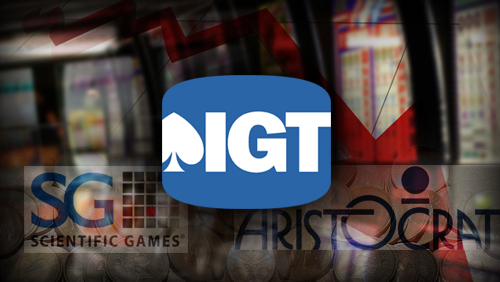
Slot Machine Manufacturers Head to Head
When it comes to the capital goods sector of the gambling industry – the gaming machine manufacturers – there are no clear winners. There are safer companies and more dangerous ones, but none in any sort of exceptional position. One thing that stands out about the capital goods sector of gaming is that, while most retailers – the big direct-to-consumer casinos themselves – have recovered spectacularly since the financial crisis, the machine manufacturers have not. At least not in terms of share price. International Game Technology (IGT) gets singled out sometimes for lagging in capital growth compared to direct-to-consumer casino companies, but that’s apples to oranges comparing two different strata of the gambling industry.
Scientific Games (SGMS), Aristocrat Leisure (ALL), and IGT are all way below their 2007 highs. The only game manufacturer that ended up surpassing its 2007 highs was Bally Technologies, which got acquired by Scientific.
Let’s take a look at three of them.
Aristocrat Leisure in Australia
Aristocrat is in something of a weird situation. First, taking a look at the macro conditions and monetary picture in Australia, we see this.
money supply growth has been stable for a decade. You can almost draw a straight diagonal line from 2002 until now, so nothing too crazy there. However, take a look at the Aussie Dollar / US Dollar exchange rate and there’s definitely something strange going on in the Outback.
The AUD has weakened 20% in 6 months against the USD. This can’t be because of supply, since while the AUD supply certainly is not stable (it keeps growing at a close to constant rate), it is a lot more stable than the supply of other currencies. This has to do with USD demand, which has skyrocketed in tandem with collapsing oil prices, the USD being for all intents and purposes an oil-backed currency, since oil can only be traded in US Dollars. The conclusion being that the current fall in the Aussie Dollar since September is artificial and entirely related to oil. See for yourself below, comparing the oil price with the AUD/USD ratio.
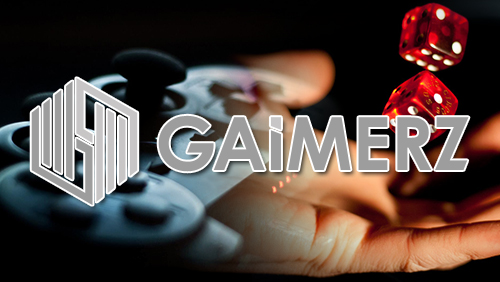
Gaimerz.com Co-Founder Martyn Denney on Video Game Wagering
Gaimerz.com Co-Founder Martyn Denney on Video Game Wagering Video
jwplayer(“mediaspace”).setup({
flashplayer: “/video/player.swf”,
file:”http://30.cdn.bit2host.eu/videos/audio-interview/gaimerz-com-co-founder-martyn-denney-on-video-game-wagering-ld-audio-interview.m4a”,
autostart:”false”,
Stevens Testifies on Behalf of Instant Racing
Hall of Fame jockey Gary Stevens was among the proponents of Instant Racing who testified Feb. 9 before an Idaho legislative committee urging lawmakers not to repeal a law that permits the electronic gaming machines.
AZ Senate vote OKs bill shielding lottery winners
PHOENIX – The Arizona Senate has passed a bill shielding the names of lottery winners for 90 days after they claim their prize. Republican Sen. John Kavanagh says his proposal is designed to give big winners time to get financial advice and make security arrangements.
Suspected Bali Nine mastermind living in luxury as Andrew Chan and Myuran Sukumaran sit on death row
A man police suspect was a mastermind of the Bali Nine drug importation is living a life of luxury in Sydney while two junior members of his syndicate, Andrew Chan and Myuran Sukumaran, await the firing squad in Bali. The man’s lavish lifestyle is funded by a multimillion-dollar lottery pay out, which he won about the time the two young Australians, who acted as the local leaders of the syndicate in Bali, were being sentenced to death.
Powerball Jackpot Estimated to reach $450M after no Winners on Saturday
Sue Dooley is the senior drawing manager for the Multi-State Lottery Association, which oversees Powerball. She says the estimated value of Wednesday’s drawing will be $450 million.
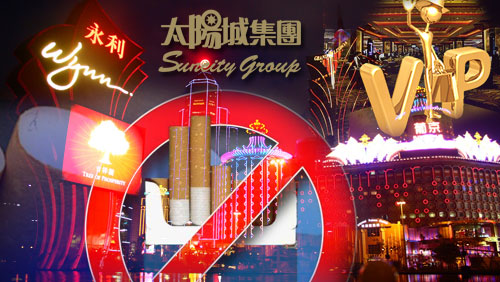
VIP sector is irreplaceable says Suncity chairman; full-smoking ban likely in 2016
Suncity Group owner and Chairman Alvin Chau Cheok Wa said that the closures of some VIP rooms in Macau was to be “expected” but the mass market could not replace the VIP sector.
Regardless of the VIP business slump, Mr. Chau said that the sector is still important for the whole industry, as revenues generated by the sector account for as much as 70% of total gaming revenue.
“If there are no VIP rooms, [despite] the proportion of the mass market getting bigger, the drop in gaming revenue will remain serious,” Chau said in an interview with local Chinese media outlet Macau Asia Satellite Television.
Chau also predicts that the VIP sectors will see a revenue drop by 15% more following the implementation of a full smoking ban. “Even Singapore, with its strict government, let gaming operators build indoor smoking rooms inside the casino when it opened the gaming market, [so that there are] smoking areas and non-smoking areas,” Chau said.
Macau’s Health Bureau’s Tobacco Prevention and Control Office Director Tang Chi Ho said that the full ban on smoking in all indoor workplaces in Macau—including VIP rooms and airport-style smoking pods on mass gaming floors— is likely by 2016.
Tang said he was “confident” a tobacco ban covering all workplaces in all Macau casinos would gain acceptance among the public and be approved by Macau’s Legislative Assembly members. Alexis Tam Chon Weng, Macau’s Secretary for Social Affairs and Culture, on January 29 said the government would strive to have an amended bill ready before the end of the first half of 2015.
Meanwhile, local gaming union Macau Gaming Enterprises Staff Association submitted a petition of about 20,000 signatures to the government headquarters on Friday, urging the government to legislate on smoke-free casinos within this year. Choi Kam Fu, director-general of the association told the reporters that the limits of fines punishing a casino for not posting smoking ban signs is too low and not an effective punishment, suggesting the government to include records of violations of the smoking ban as one of the factors in the renewal of gaming licenses.
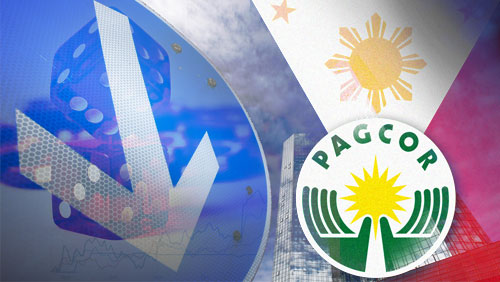
PH casino shares drop due to China’s war on global gambling; PAGCOR remains unfazed
Share prices of casino companies in the Philippines took a tumble, the biggest one-day loss in the last year, over fears that China’s increased focus on cracking down on foreign casinos could have a debilitating effect in the Philippine casino industry.
According to BusinessWorld, share prices dropped across the board with Bloomberry Resorts Corp. seeing the biggest drop at 11.64% before closing at a price of Php10.32 per share, the biggest shares drop the company has experienced in over three years. Melco Crown (Philippines) Resorts Corp. wasn’t far behind with its share price going down 10.19% to Php9.70 per share. Meanwhile, Premium Leisure Corp. the local arm of Melco Crown Resorts and the SM Group, saw its share price stumble by 8.24% to Php1.56 per share, while Travellers International Hotel Group Inc., which operates Resorts World Manila, saw its share price go down by 4.23% to Php6.80 per share.
Despite the looming threat of China’s iron hand having a negative affect on the casino industry in the Philippines, there are still those who believe that the country won’t be as affected by this crackdown as many have feared. Tiger Resorts, Leisure & Entertainment Inc. Executive Vice-President of Casino Operations and Marketing Matt Hurst told BusinessWorld that “legitimate tourism and travel” to the Philippines from China won’t be affected by this crackdown and the healthy influx of Chinese tourists could still feed into the growth of the Philippine casino industry. Incidentally, Tiger Resorts, the local arm of Kazuo Okada’s Universal Entertainment Corp. that is building Manila Bay Resorts is unlisted in the Philippine Stock Exchange.
Hurst also noted that the gaming market in the country is well-equipped to accommodate visitors from other countries and not just from China.
The Philippine Amusement and Gaming Corporation (PAGCOR) took a similar stance on the issue, noting that Chinese gamblers aren’t the “be-all-end-all” clients they’ve been made out to be. While they do represent a vast and rich market, the Philippine casino industry can still tap into “several sources” of tourists who come to the Philippines, including those coming from South Korea, Japan, Taiwan, and other Southeast Asian countries.
Some analysts, including COL Financial Vice President April Lynn Tan, believes that while the crackdown might have a short-term effect in bringing high-rollers to the Philippines, China’s mass market could make up for that through the volume of visitations in the country. Either way, Tan also said that the stumble in share prices of casino operators is a “knee-jerk” reaction” from shareholders who aren’t willing to wait out this dip because of fears that Macau’s sinking casino revenue could be a sign of things to come in the Philippines.
At some point, Summit Securities President Harry Liu believes that casino operators will “likely reach an agreement” with the Chinese government on how to resolve the issue that will satisfy all parties concerned. “The owners of big casinos can’t just sit down and do nothing. Casino has been here for a long time, you can’t imagine that it will just close down,” Liu told BW.

UK Gambling Commission Updates Social Responsibility Requirements
The UK Gambling Commission has published a series of updates on the version of its License Conditions and Codes of Practice (LCCP) for licensed operators, which will take effect May 8.
The changes to the LCCP is a response to the LCCP social responsibility review that took place last year, increasing the number of measures with which companies must comply under the terms of their license agreement.
Here are the main points of the new regulatory enhancements, much of which will go into effect in May:
Operators’ employees must be able to supervise customers effectively on gambling premises. And they must have arrangements for identifying customers who are at risk of gambling-related harm, if they are not displaying obvious signs.
Larger operators must conduct test purchasing to make sure that their systems for preventing underage gambling are working.
By April 2016, land-based operators must have in place schemes that allow a customer to make a single request to self-exclude from all operators of a similar type within their area – typically where they live and work. The Commission is also working with industry representatives to develop a national online self-exclusion scheme, which should be in place in 2017.
A range of measures to ensure that marketing and advertising is socially responsible, including a requirement that the marketing of ‘free bet’ offers is open, transparent and not misleading.
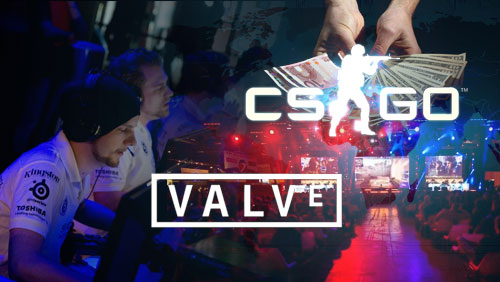
Valve warns Counter-Strike players to stop gambling, match fixing
Valve Corporation, the developer of first-person shooter video game Counter-Strike, has issued a strong warning to any professional player that match fixing, or gambling of any kind while playing the video game should be put to a stop.
“Professional players, teams, and anyone involved in the production of CS:GO events, should under no circumstances gamble on CS:GO matches, associate with high volume CS:GO gamblers, or deliver information to others that might influence their CS:GO bets,” the company said in a statement.
As such, Valve has imposed a new set of rules that forbids professional players from placing bets on matches, even those that they’re not directly partaking in. The new rule will now be imposed on all tournaments sponsored by the company.
While it’s hard to actually police betting on Counter-Strike: Global Offensive matches, the company is pleading to its players to follow the new rule to “protect the integrity of these matches” because match fixing episodes could have a substantial impact on the heat and stability of the sport.”
“Betting using inside information, or even the perception or suspicion thereof, carries a significant risk of damaging your personal brand, your team, your community, and may lead to exclusion from future Valve-sponsored events,” the company added.
The announcement came after a recent of high-profile betting controversies, including match fixing claims, came to light. Valve even took the unprecedented step of banning some players for participating in throwing away games for the sake of winning bets.
This includes 19 players from Epsilon eSports, ex-ESC Gaming and WinneR, all of whom were banned from participating in an upcoming tournament in Poland after evidence of match fixing came to light. Five players from ex-ESC Gaming ultimately saw their bans overturned, but 14 players from the other two teams remained.
'Florida Man' on Film, Teen Dating Safety, $450 Million Powerball Jackpot
The Sarasota County Sheriff’s Office is marking Teen Dating Violence Awareness Month by rolling out a new video series. “The whole nation was deceived,” says coach of the team that lost the U.S. series to Jackie Robinson West.
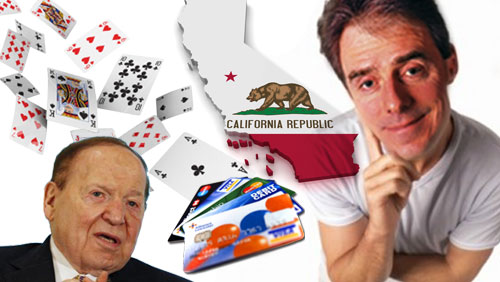
Pala Interactive CEO Jim Ryan thinks Adelson’s legislation has a good shot
Pala Interactive CEO Jim Ryan, who was also the CEO of PartyGaming and co-CEO of bwin.party, has expressed his concerns over the likelihood of the Restoration of America’s Wire Act (RAWA) becoming law.
Last week saw Rep. Jason Chaffetz reintroduce RAWA, the anti-online gambling legislation supported by Las Vegas Sands Chairman Sheldon Adelson. The three-page bill would create a federal ban on almost all online gambling, seeking to undo the late-2011 Department of Justice opinion that the 1961 Wire Act only applies to sports betting.
RAWA would force Nevada, New Jersey and Delaware—the only states where online gambling is regulated—to close their intrastate online gambling markets and would also restrict state lotteries from offering online services.
“It’s a most interesting time in that we have a Republican-controlled Congress and a well-financed political effort to amend the Wire Act. This is the most significant threat we’ve had post-Black Friday,” Ryan told PocketFives.”I think Adelson’s legislation has a good shot of passing.”
Ryan also said that if Adelson’s group was successful in amending the Wire Act, it would push online gambling into the black market instead of regulating it.
Regulated igaming in California: “…Low Odds of Bill Passing in 2015.”
With the Washington and Mississippi online poker bills now dead, any hopes of another state joining the country’s three regulated markets in 2015 now rest pretty much with California. However, with the Golden State’s gambling interests continuing to find little common ground, the chances of California’s AB 9 and AB 167 bills progressing in 2015 remains a long shot.
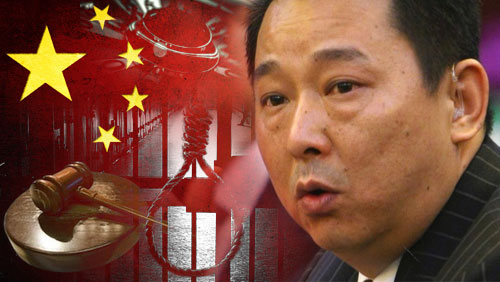
China executes billionaire business tycoon with gambling ties
China’s fight against corruption is no joke. Take the case of billionaire tycoon Liu Han, who was just executed after being found guilty of running a “mafia-style” gang responsible for multiple murders, assaults, gun-running, theft and embezzlement. Multiple reports also indicated that Liu’s crimes included running illegal underground casinos.
According to a statement by the Xianning Intermediate People’s Court in Hubei province, four other members of Han’s purported gang, including his brother Liu Wei, were also executed earlier this week after the Supreme People’s Court approved their sentences.
The Liu brothers and the three other individuals were convicted in May 2014 on a host of charges, including murder and organizing, leading, or participating in a gang. Court documents also revealed that law enforcement authorities confiscated a number of weapons from the gang, ranging from standard knives and handguns to submachine guns and hand grenades.
Liu’s execution comes at the height of President Xi Jinping’s anti-corruption crackdown, which has resulted in a number of high-profile arrests that have included senior politicians and highly influential businessmen.
Liu’s case is particularly newsworthy because he was one of the most flamboyant billionaires in the country, flaunting his wealth at every opportunity after amassing a $6 billion fortune via his role as chairman of energy conglomerate Sichuan Hanlong Group in the southwestern province of Sichuan. Liu also served as chairman of the board of the Hanlong Group, considered the biggest private enterprise in Sichuan, as well as the listed Jinlu Group. He also reportedly owned numerous subsidiary companies that dealt in electricity, energy, finance, mining, real estate and securities with businesses in as far as the US and Australia.
Liu’s extravagant lifestyle was offset by his noted philanthropic work, which included building a rural elementary school complex in Sichuan that was able to withstand the 2008 earthquake in the area. But behind his glamorous lifestyle, Liu apparently had a darker side to him, something that the Central Committee of the Communist Party of China uncovered, leading to its arrest and eventual execution.